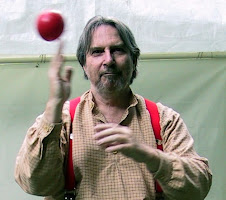A as in aisle, (I'll)
B as in bdellium, (dellium)
C as in czar, (zar)
D as in djin, (gin)
E as in ewe, (you)
F as in phonics, (fonics)*
G as in gneiss, (nice)
H as in heir, (air)
I as in Iago, (ee-ah-go)*
J as in Jai Alai (hi-lie)
K as in knot, (not)
L as in llama, (yama)
M as in mnemonic, (nemonic)
N as in Nguyen (yuen, ruan), also Ngo (go)
O as in Ouija, (weegee)
P as in phthalate, (thalate)
Q as in quay, (key)
R as in Argentina, (okay, it's a schwa; so sue me)*
S as in tsunami, (sunami)*
T as in tsunami, (sunami)
U as in Uitlander, (oitlander)
V as in veldt, (felt)
W as in wrote, (rote)
X as in xipe, (hype)
Y as in ytrium, (Itrium)
Z as in Zouave, (djoo-ahv)
There are several print and Internet versions of this exercise, all very much alike (see esp. the remarkable www.questrel.com/records.h...ch_letter, or tinyurl.com/2am3zt, and then "Word That is a Confusing Code for Each Letter," and surrounding lists), but none are perfect, including this one.
I like mine better than the others, but there's no accounting for taste. I'd rather use words that begin with the letter they name (see * above) but don't sound. I'd prefer to avoid foreign or obscure geographical names. But then, "obscure" is relative. Ask any Scrabble player.
I have used non-Western names if they are not uncommonly used in the U.S., and commonly recognized regional or ethnic terms (Uitlander, Zouave), but I would prefer to use relatively common American-English terms findable in Webster's 11th+ Collegiate dictionary or the equivalent.
All of the Websters' have been thoroughly combed, along with the OED, and other standard references, so we'll just have to wait for new words to be coined, foreign words to be adopted, or old words to become popular again.
Please use, modify, and distribute this list as you will. A few of you may be so enchanted as to memorize it and use these words to "help" spell other words that are unclear to the listener. Will Shortz routinely does this. In addition to being the "puzzler" of National Public Radio and the editor of the New York Times Crossword, he is also the historian of the National Puzzlers' League, whose monthly magazine I started printing the mid-1980s. Hence my interest in such silliness. I hope it's yours, too. If it is, please see www.puzzlers.org for a lifetime of fun.
=Eric Bagai, Portland, 2007
First published in Tribe, April 7, 2007 -
Subscribe to:
Post Comments (Atom)


No comments:
Post a Comment